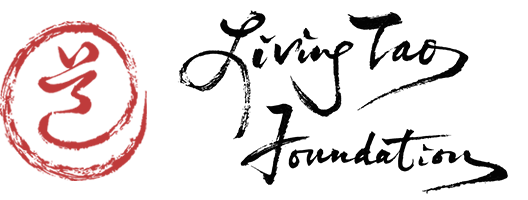“A Tai Ji beginner is the best student of life, and for life.”
Chungliang Al Huang
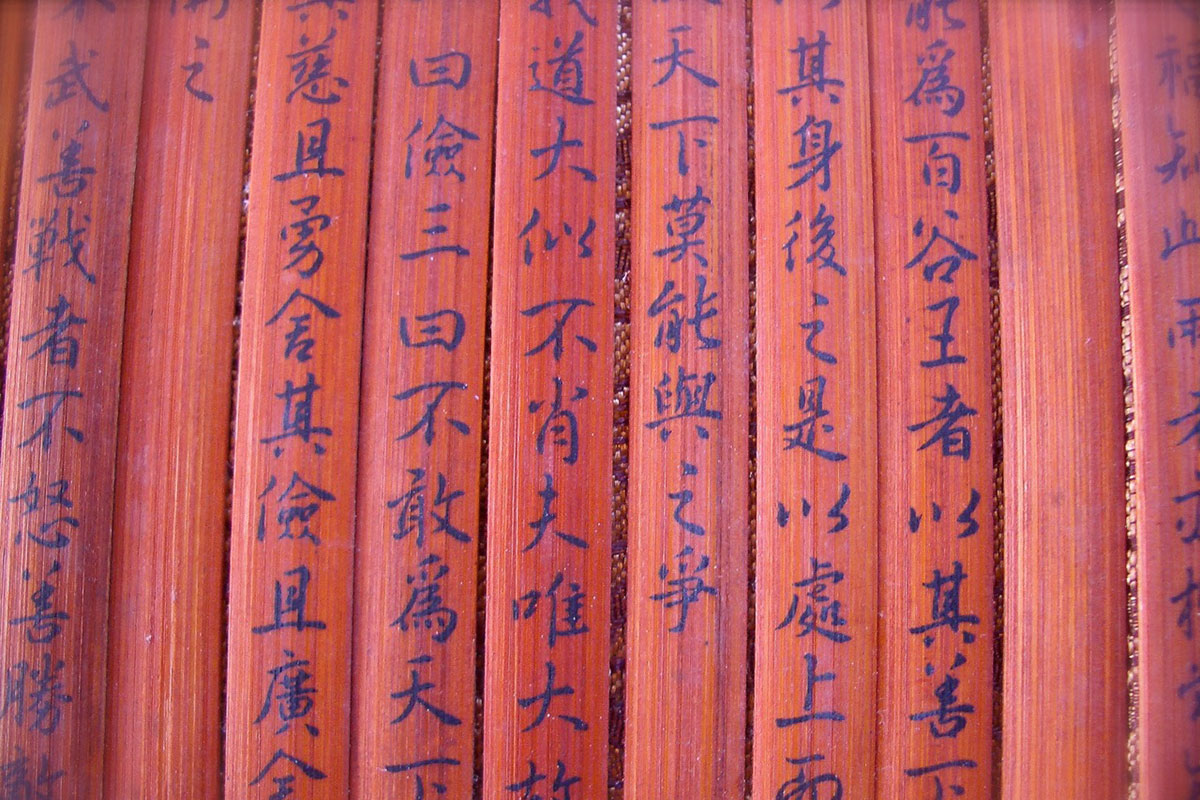
Choose one of the many translations of Lao Tzu’s Tao Te Ching to read daily. Compare the variations to contemplate often. One verse at a time, slowly learn to digest and apply what you have learned in your lives.
Refer to Lin Yutang’s commentaries on Chuang Tzu in his Modern Library’s edition of The Wisdom of Lao Tse.
I Ching: Choose a current version you enjoy to contemplate often. Use it as a wisdom book, instead of fortune-telling oracles.
Young China: How the Restless Generation will Change their Country and the World by Zak Dychtwald
The River at the Center of the World: A Journey Up the Yangtze and Back in Chinese Time by Simon Winchester
The Water Kingdom by Phillip Ball
Last Boat out of Shanghai by Helen Zia
Bloody Saturday: Shanghai’s Darkest Day by Paul French
Haunted by Chaos: China’s Grand Strategy from Mao Zedong to Xi Jingpin by Sulmann W. Khan
Our Story by Rao Ping Ku
David Darling and I have been exploring a poetic and musical collaboration of Chinese poetry from ancient Chinese dynasties. I can highly recommend our first two CDs: The Tao of Poetry and The Zen of Poetry.
Music plays an important part in every Living Tao seminar. Here is a reminder of the power of music QI – for us to harness and enjoy:
I am currently listening to David Darling’s new CD “Prayer for Compassion”. It’s very powerful and won a Grammy Award in 2010; produced by David Darling and Mickey Houlihan of Wind Over the Earth.
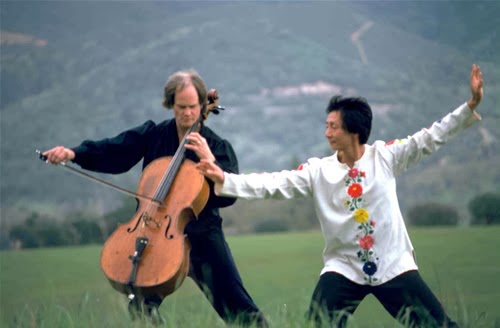
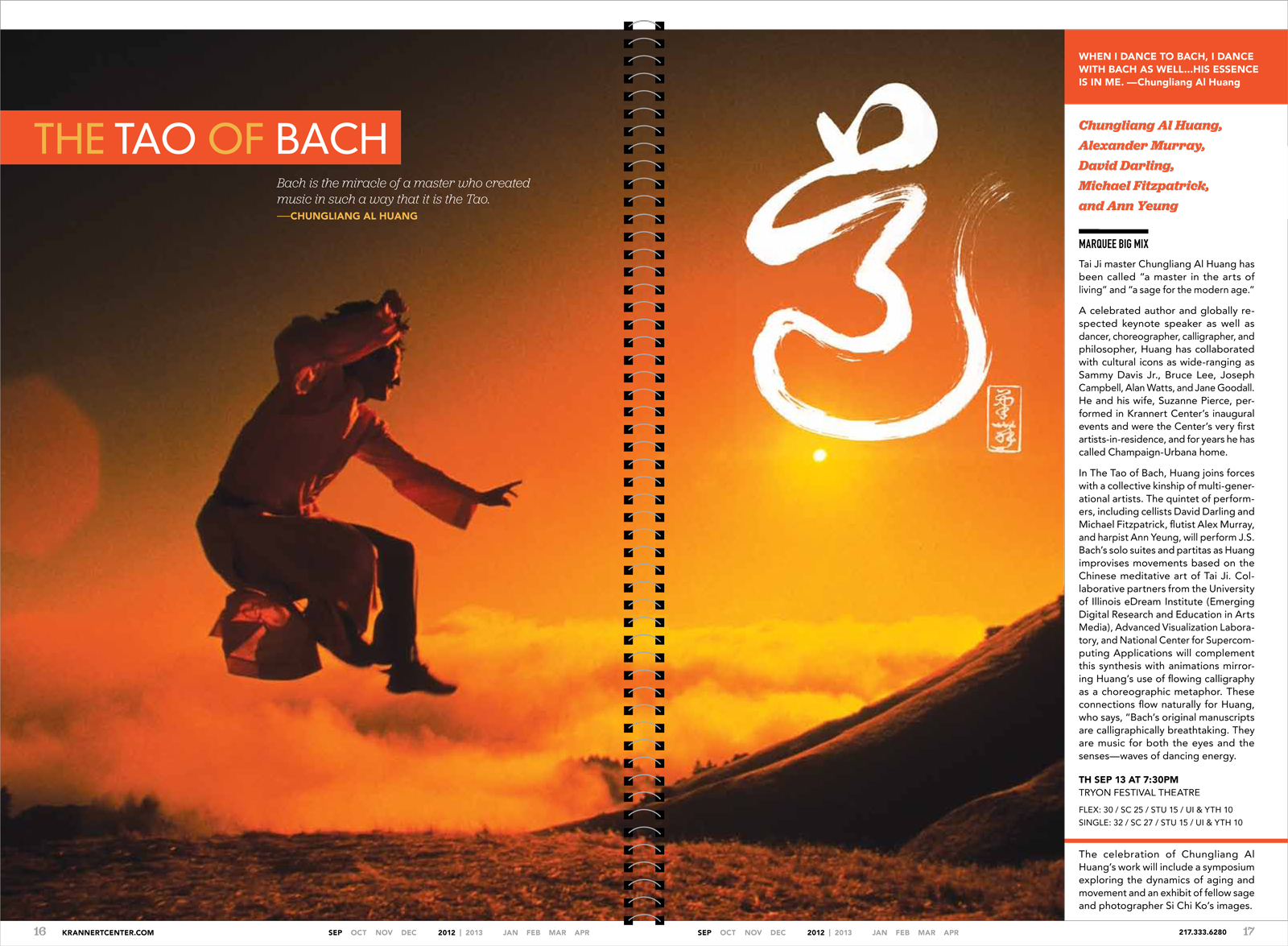
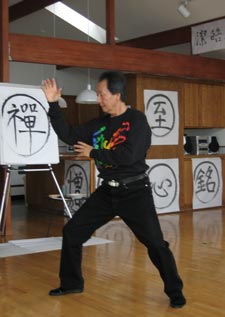
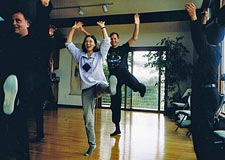
Some other perennial favorites: Claude Debussy and Maurice Ravel’s String Quartets Gabriel Faure’s Requium, Op.48 Villa Lobos’ Bachiana Brasileiras No. 5 Aria. Richard Strauss’ Four Last Songs Rachmaninov’s Vocalise Anton Bruckner’s Adagio from Symphony #7 Marcello’s Adagio from Concerto in C-minor for Oboe and Strings and Continuo Handel’s Largo from Xerses Pachalbel’s Canon in D (the most flowing and lush version from Musical Heritage Series #1060 with Jean Francois Paillard conducting)
And music from our Tai Ji musician friends: Paul Winter’s Icarus and Common Ground Paul Horn’s Inside the Taj Mahal and CHINA Terry Riley: In C, Zen of Water David Darling Andreas Vollenweider Michael Fitzpatrick.
Soon, I will compile some of the best of classical Chinese music for a special CD for Living Tao members.
Love, Chungliang
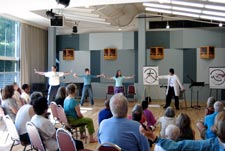
The great poet Robert Frost once said “Poetry is a way of grabbing life by the throat.” By cutting to the core of our experience, poetry awakens and enlivens us.
Master Chungliang finds many ways to inspire and stimulate us, often using poetic metaphors to enrich our understanding of elements of our Tai Ji form. Here is a selection of some of our favorite poems, stories and quotations drawn from Chungliang’s seminars.
We shall not cease from exploration … and the end of all our exploring will be to arrive where we started and know the place for the first time
T.S. Eliot
from Little Gidding (NO. 4 OF FOUR QUARTETS)
I live my life in growing circles which flow over all things. I may not achieve the last one but I will try. I am circling around God and the ancient tower I am circling thousands of years and do not know yet if I am a falcon, a storm, or a great song.
Rainer Maria Rilke
Waschsende Ringe
There are three kinds of souls … and three related prayers 1) I am a bow in your hands, Lord. Draw me lest I rot. 2) Do not overdraw me, Lord, lest I break. 3) Go ahead and stretch me, Lord. Who cares if I break!
Nikos Kazantzakis
from Report to Greco
Be patient toward all that is unsolved in your heart and try to love the questions themselves. Do not seek the answers that cannot be given you, because you would not be able to live them. And the point is to live everything Live the questions now. Perhaps you will gradually, without noticing it, live along some distant day, into the answer.
Rainer Maria Rilke
from Letters to a Young Poet
The time will come When, with elation, You will greet yourself arriving At your own door, in your own mirror, And each will smile at the other’s welcome, And say, Sit here. Eat. You will love again the stranger who was your self. Give wine. Give bread. Give back your heart To itself, to the stranger who has loved you All your life, whom you ignored For another, who knows you by heart. Take down the love letters from the bookshelf, The photographs, the desperate notes, Peel your image from the mirror. Sit. Feast on your life.
Derek Walcott
Love After Love
I stand at the center and the light shines all around me. And now I know that my spirit glowing makes this light. I come into power with the sun for I am like the sun. I am my own light. Here at the center I see the meaning of things, all things. And now I know that I am the meaning. The whole meaning. The four directions come together in me. I am the center and everything flows from me, returns to me. I am that which they call Great Mystery. I am that which each one calls Waratanka — Tao Spirit — before coming here, before seeing the light. I am here and so I know. Here I know everything. Here I know my self. I am thought and will. And nothing sits above my will. I am pride and joy. And nothing sits above my joy. I own my life. And only mine. And so I shall appreciate my person. And so I shall make proper use of my self. I stand here in the light of my own presence and I recognize my power. I am reason. And nothing sits above my choice. I am truth. And so I live in the spirit. And so I live forever. I am the oneness of the whole. And whatever happens, happens in me. I am Ahbleza — TAO. I own the earth.
Teton Sioux Native
Hanta Yo
There are three doors on your way to aliveness: The first door opens when you start the search. The second door is the mirror of truth; you see yourself as you really are. If you have enough support not to run away from what you are seeing, but to walk through the mirror, the third door, which only opens when you don’t want to walk through, appears. The harder you try to get through, the more the door is closed. The mystery here is this: if you can stand seeing yourself as you really are and walk through the mirror with open eyes, you forget where you wanted to go. And the last door quietly opens.
Michael Ende
from the Never Ending Story
Birth and Death are not apart Where have your dreams gone? Do believe in life continuing on Even though the sky has lost its luster You must hope for tomorrow to come No matter where you are I will always find you Through our blood streams, miracle happens Your cry is etched deep in my blood Birth and Death are not apart I count moments waiting for news of you I believe life is eternal Although I cannot see you You are always in my heart No matter where you are I will always find you Through our blood, miracle happens Link up our joint hands Let us pave your road safely home Life and Death are not apart We suffer together, but no tears please Your Love is legendary Rainbow comes after the storm No matter where you are I will always find you Through our blood, miracle will happen Just one glimmer of hope remains in you Will give me full momentum to surge on finding you!
Anonymous, China
No matter where you are, I will always find you.
You do not have to be good. You do not have to walk on your knees for a hundred miles through the desert, repenting. You only have to let the soft animal of your body love what it loves. Tell me about despair, yours, and I will tell you mine. Meanwhile the world goes on. Meanwhile the sun and the clear pebbles of the rain are moving over the prairies and the deep trees, the mountains and the rivers. Meanwhile the wild geese, high in the clean blue air, are heading home again. Whoever you are, no matter how lonely, the world offers itself to your imagination, calls to you like the wild geese, harsh and exciting — over and over announcing your place in the family of things.
Mary Oliver
Wild Geese
Here is how I sum it up: Heaven does nothing; its non-doing is its serenity. Earth does nothing; its non-doing is its rest. From the union of these two non-doings All actions proceed, All things are made. How vast, how invisible This coming-to-be! All things come from nowhere! How vast, how invisible No way to explain it! All beings in their perfection Are born of non-doing. Hence it is said: “Heaven and earth do nothing Yet there is nothing they do not do.” Where is the man who can attain To this non-doing
Chuang Tzu (translated by Thomas Merton)
Perfect Joy
… for everything flowers, from within, of self-blessing; though sometimes it is necessary to reteach a thing its loveliness, to put a hand on its brow and retell it in words and in touch it is lovely until it flowers again from within, of self-blessing.
Galway Kinnell
from Saint Francis and the Sow
